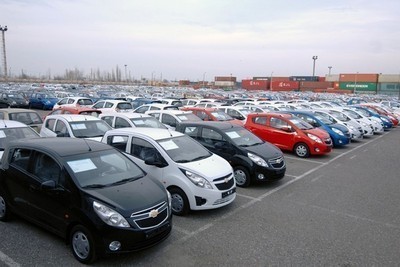TASHKENT (TCA) — At a meeting on development of Uzbekistan’s automotive industry on July 8, President of Uzbekistan Shavkat Mirziyoyev ordered the country’s automobile manufacturing company to increase annual production from the current 250 thousand to 350 thousand cars by 2023, and to increase the export to at least 100 thousand cars per year, the official information agency Jahon reported.
It was said at the meeting that over the past twenty-three years, the automotive industry of Uzbekistan has consistently developed and taken its position in the domestic and foreign markets. From October 1 this year, the benefits introduced for the industry will be canceled, and it will fully switch to the principles of a market economy. This, in turn, will require the introduction of modern management mechanisms, increasing the attractiveness and competitiveness of products manufactured by the automotive industry.
In the first six months of this year, the volume of production in the Uzbek automotive industry grew by 54 percent compared to the same period last year. Products worth almost 73 million USD were exported, the share of domestically produced cars in the Uzbek market reached 97 percent.
However, it was emphasized, with regard to the production localization level, the figures are disappointing. The localization level in the production of cars is 45 percent, for trucks and buses – 24 percent.
Uzbekistan’s automaker JSC Uzavtosanoat has been tasked to increase the total production volume from the current 250 thousand to 350 thousand cars by 2023, as well as to increase the export to at least 100 thousand cars per year.
This requires introduction of an advanced industry management system and optimization of production costs with involvement of specialists from foreign consulting companies.
It was indicated that the cost of logistics for exporting a single car is 8-10 percent of its value, and therefore the tasks were defined for supporting the industry, including in the form of a partial reimbursement by the state of transportation costs for exports.
The Ministry of Economy and Industry has been instructed to increase the level of production localization, in particular to launch domestic production of 22 types of currently imported components.



